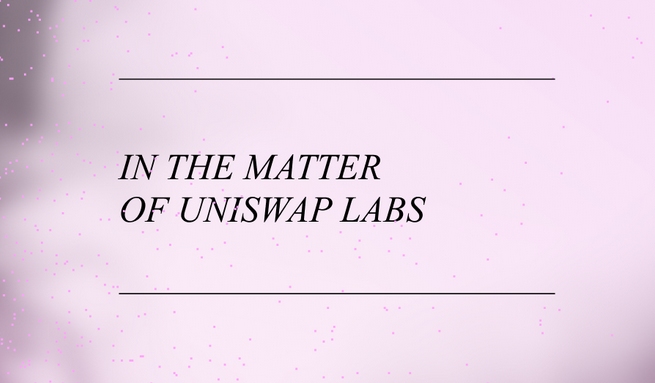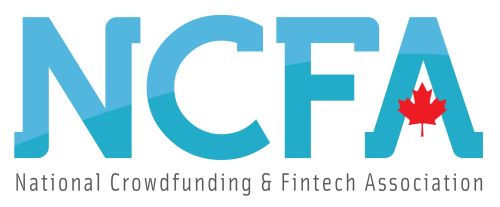DeFi Legal Battle | May 23, 2024

 Image: Uniswap labs
Image: Uniswap labsUniswap Legal War with the SEC: A DeFi Test Case
Concurrent to the recent passing of the FIT21 bill by the U.S. House, the ongoing legal battle between Uniswap and the U.S. Securities and Exchange Commission (SEC) is a monumental test case for decentralized finance (DeFi) with regulatory implications and challenges facing open-source financial systems globally. The SEC has accused Uniswap of operating an unregistered securities exchange and claims that its UNI token constitutes an investment contract. On the other hand, Uniswap counters these allegations by emphasizing the decentralized nature of their protocol.
Uniswap argues that its software is autonomous, enabling peer-to-peer transactions without the need for intermediaries. This, they claim, exempts them from the definition of a securities exchange. Uniswap’s protocol has demonstrated remarkable efficiency and security, facilitating over $2 trillion in trading volume without significant security breaches. This achievement highlights the potential for DeFi platforms to provide efficient, secure, and transparent financial services, potentially surpassing the capabilities of traditional financial systems.
Legal Precedents and Weak SEC Case
Uniswap’s legal team, which includes former high-profile SEC officials, is focused on the perceived weaknesses in the SEC’s case. They argue that historical court decisions have often favored technological innovation over restrictive regulations. This precedent suggests that the courts may lean towards supporting Uniswap’s position, recognizing the transformative potential of decentralized technologies.
See: SEC Issues Wells Notice to Uniswap. Another Legal Showdown
Uniswap asserts on their most recent blog post ‘the fight for DeFi continues‘ that the SEC accusations are weak:
“These assertions assume that value represented in a specific digital file format is a security – and that the SEC can unilaterally extend the definitions of exchanges, brokers and contracts to the point of meaninglessness. A token is a file format, like a PDF. The Protocol is a general purpose computer program that anyone can use and integrate, like TCP/IP. And the hundreds of thousands of users who received UNI tokens for their participation in the protocol’s early days received the token for free, with no contract, and without expectations of profit solely from the efforts of Uniswap Labs.”
Response to SECs Wells Notice
Uniswap made several key arguments in their 43 page wells notice response defense against the SEC’s allegations.
- Uniswap argued that their protocol is decentralized, autonomous software enabling peer-to-peer transactions without intermediaries, which means it does not fit the definition of a securities exchange.
- The UNI token is primarily a governance token that allows holders to vote on protocol changes, not an investment contract.
See: Avi Eisenberg Trial: DeFi’s Legal Boundaries Tested
- Uniswap Labs does not control or maintain the protocol, akin to how no single entity controls Bitcoin.
- Uniswap does not solicit users to engage in trading activities or provide investment advice.
- Uniswap does not take custody of user funds, which negates the claim of it being a clearing agency.
- Citing previous court decisions that favored technological innovation, Uniswap argued that their protocol does not meet the statutory definitions of an exchange, broker, or clearing agency under the SEC’s current regulations.
- Uniswap asserted that the SEC lacks the congressional authority to regulate the protocol as an exchange under the major questions doctrine, which requires clear authorization from Congress for such significant regulatory actions.
- They claimed the SEC failed to provide fair notice that their conduct could be considered unlawful, as required under due process principles.
- Uniswap emphasized that an enforcement action would harm the public interest by stifling innovation, forcing companies offshore, and depriving U.S. investors of the benefits of decentralized finance.
- They highlighted the economic impact and the protocol’s efficiency and cost-saving benefits for users, arguing that these innovations should be encouraged rather than penalized.
These arguments collectively aim to demonstrate that Uniswap’s operations are fundamentally different from traditional financial intermediaries and should not be subject to the same regulatory framework.
Impact of FIT21 on Uniswap vs. SEC Case
The recently passed Financial Innovation and Technology for the 21st Century Act (FIT21) does have implications for the Uniswap vs. SEC case. Here’s how it might impact the case.
See: SEC Issues Wells Notice to Robinhood Over Crypto
- The FIT21 Act includes establishing criteria to determine the level of decentralization for blockchain networks and clarifying that an asset delivered pursuant to an investment contract is not necessarily a security itself.
- There’s also a provision for certifying the decentralization of blockchain networks, which involves public comments and SEC review. The act’s emphasis on decentralization might favor Uniswap’s stance that their operations do not fit traditional definitions requiring SEC registration.
- Joint SEC and CFTC oversight could introduce a more balanced regulatory approach, potentially reducing the SEC’s unilateral enforcement power. Uniswap could benefit from this dual-agency oversight, leveraging CFTC’s more commodity-focused perspective on digital assets.
- Additionally, the Blockchain Regulatory Certainty Act (BRCA), provides legal certainty for non-custodial entities so developers and infrastructure providers that do not custody or control user funds, ensuring they are not considered money transmitters.
Conclusion
The Uniswap vs SEC battle is one for the ages that tests the application of traditional securities regulations to new and innovative technologies like DeFi. The crypto world is watching and the outcome along with the potential enactment of FIT21 will establish significant precedents for the future of DeFi regulation and influence compliance strategies globally.

 The National Crowdfunding & Fintech Association (NCFA Canada) is a financial innovation ecosystem that provides education, market intelligence, industry stewardship, networking and funding opportunities and services to thousands of community members and works closely with industry, government, partners and affiliates to create a vibrant and innovative fintech and funding industry in Canada. Decentralized and distributed, NCFA is engaged with global stakeholders and helps incubate projects and investment in fintech, alternative finance, crowdfunding, peer-to-peer finance, payments, digital assets and tokens, artificial intelligence, blockchain, cryptocurrency, regtech, and insurtech sectors. Join Canada’s Fintech & Funding Community today FREE! Or become a contributing member and get perks. For more information, please visit: www.ncfacanada.org
The National Crowdfunding & Fintech Association (NCFA Canada) is a financial innovation ecosystem that provides education, market intelligence, industry stewardship, networking and funding opportunities and services to thousands of community members and works closely with industry, government, partners and affiliates to create a vibrant and innovative fintech and funding industry in Canada. Decentralized and distributed, NCFA is engaged with global stakeholders and helps incubate projects and investment in fintech, alternative finance, crowdfunding, peer-to-peer finance, payments, digital assets and tokens, artificial intelligence, blockchain, cryptocurrency, regtech, and insurtech sectors. Join Canada’s Fintech & Funding Community today FREE! Or become a contributing member and get perks. For more information, please visit: www.ncfacanada.org
Related Posts
- SEO Powered Content & PR Distribution. Get Amplified Today.
- PlatoData.Network Vertical Generative Ai. Empower Yourself. Access Here.
- PlatoAiStream. Web3 Intelligence. Knowledge Amplified. Access Here.
- PlatoESG. Carbon, CleanTech, Energy, Environment, Solar, Waste Management. Access Here.
- PlatoHealth. Biotech and Clinical Trials Intelligence. Access Here.
- Source: https://ncfacanada.org/uniswaps-ready-for-sec-battle-responds-to-wells-notice/



